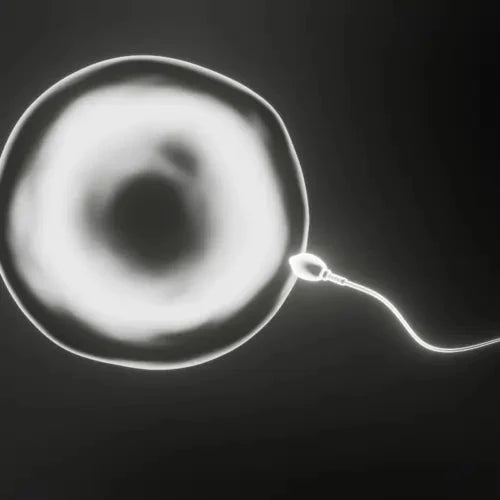
Understanding Varicocele and Its Impact on Male Fertility
Share
Male fertility relies on a delicate balance of hormonal, structural, and environmental factors. Among the many conditions that can affect reproductive health, varicocele is one of the most common—and often overlooked—causes of male infertility.
A varicocele is an enlargement of the veins within the scrotum that can impair sperm production, damage sperm DNA, and even lower testosterone levels. Fortunately, with early diagnosis and appropriate treatment, many men can restore fertility or improve their chances of conception.
What Is a Varicocele?
A varicocele is similar to a varicose vein but occurs in the pampiniform plexus, a network of veins in the scrotum. These veins are responsible for helping regulate the temperature of the testicles—a critical factor in healthy sperm production.
How It Develops
Varicoceles form when the valves inside the scrotal veins fail to work properly, causing blood to pool and veins to enlarge. This increased pressure can elevate testicular temperature and impair function.
Who’s Affected?
- Up to 15% of all men have a varicocele.
- It is more common in men aged 15 to 25.
- Among infertile men, the prevalence rises to 40%.
How Varicocele Affects Male Fertility
Varicoceles can have a multi-faceted impact on male reproductive health:
Impaired Sperm Production
- Reduced sperm count, motility, and morphology.
- Varicocele-associated oxidative stress damages sperm DNA, making fertilization and embryo development less likely.
Testosterone Disruption
- Varicoceles can reduce Leydig cell function, leading to lower testosterone levels, which are crucial for libido, energy, and sperm development.
Common Symptoms
- Dull or aching pain in the scrotum, especially after standing or physical activity
- Visible or palpable swollen veins (often described as a "bag of worms")
- Testicular atrophy (shrinking of the testicles)
- Many cases are asymptomatic and only discovered during infertility evaluations.
Diagnosing a Varicocele
Early diagnosis is critical for preventing long-term fertility issues.
Signs to Watch For
- Persistent scrotal discomfort
- Noticeable testicular size differences
- Trouble conceiving after one year of trying
Diagnostic Methods
- Physical exam: A healthcare provider may feel the enlarged veins, especially when standing.
- Scrotal ultrasound: Confirms diagnosis by visualizing dilated veins and assessing blood flow.
Treatment Options
Not all varicoceles require intervention. Treatment is typically recommended when:
- There is evidence of impaired fertility
- Symptoms such as pain or testicular atrophy are present
- Testosterone levels are negatively affected
Surgical Approaches
- Varicocelectomy: A minimally invasive surgical procedure that ties off affected veins to redirect blood flow.
- Percutaneous embolization: A catheter-based procedure that blocks the problematic vein using coils or other agents.
Non-Surgical Strategies
- Scrotal support and anti-inflammatory medications for pain relief
- Lifestyle adjustments like reducing heat exposure and maintaining a healthy weight Read: Top 10 Tips to Naturally Improve Sperm Quality
Fertility Outcomes After Treatment
The primary goal of varicocele treatment is to improve fertility outcomes, and research shows positive results:
- Sperm count and quality often improve within 3–6 months after surgery.
- Many couples can achieve natural conception post-treatment.
- For men still facing challenges, assisted reproductive technologies (ART) like IVF or ICSI can offer a path to parenthood. Related: Understanding Sperm Morphology
Prevention and Lifestyle Tips
Can Varicocele Be Prevented?
There is no guaranteed way to prevent varicocele, as the condition is often influenced by anatomical and genetic factors. However, men can take steps to support overall fertility:
- Avoid excessive heat to the testicles (hot tubs, laptops on lap)
- Quit smoking and limit alcohol intake
- Maintain a healthy weight
- Eat a balanced, antioxidant-rich diet
- Manage chronic stress and inflammation. Read: Effect of Stress on Male Fertility
When to Seek Help
Men should consult a healthcare provider or fertility specialist if they:
- Experience unexplained scrotal pain or swelling
- Have been trying to conceive for 12 months without success
- Notice changes in testicle size or consistency
Early intervention and sperm cryopreservation can preserve future fertility options, especially before undergoing surgical repair. Learn more: Sperm Storage with CryoChoice
Conclusion
Varicocele is a common but treatable condition that can significantly impact male fertility, testosterone production, and overall reproductive health. Recognizing the signs, seeking timely diagnosis, and exploring the right treatment options can help men regain control of their fertility.
At CryoChoice, we support men in taking proactive steps toward preserving and protecting their reproductive future. Whether you're planning to conceive soon or want to safeguard your fertility for later, addressing varicocele early is a step in the right direction.


